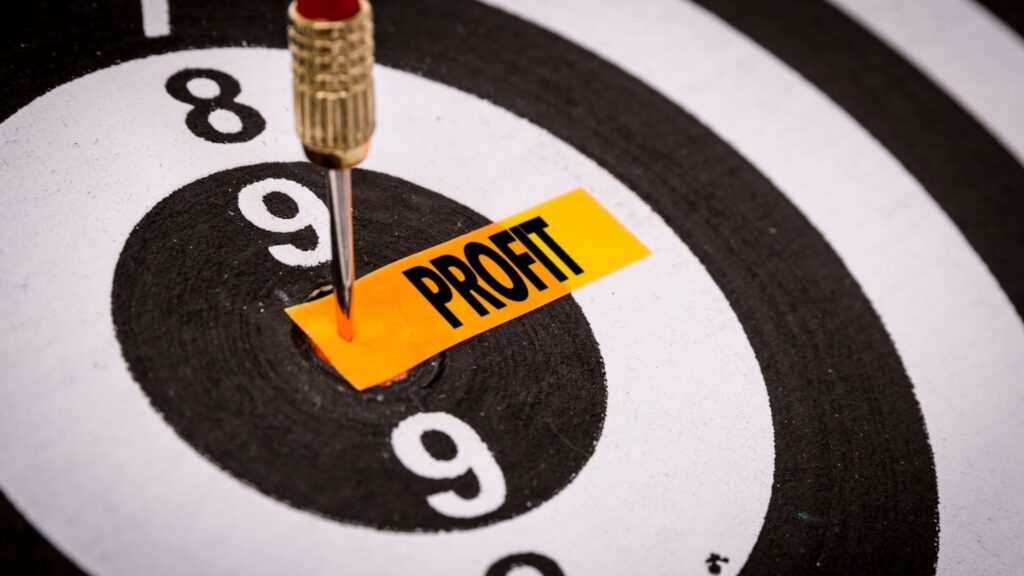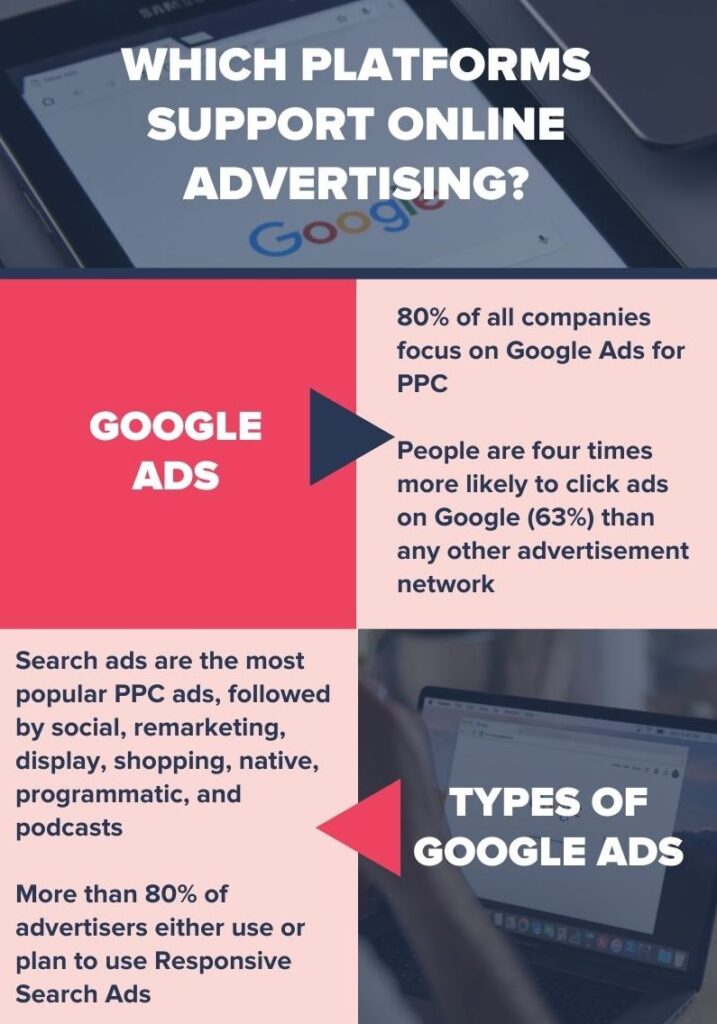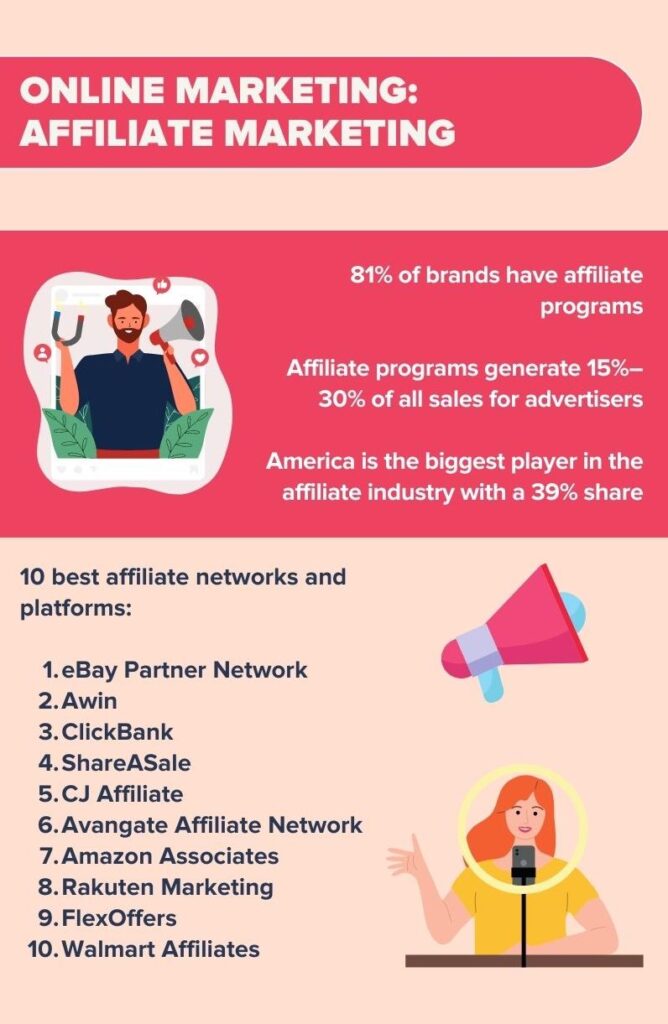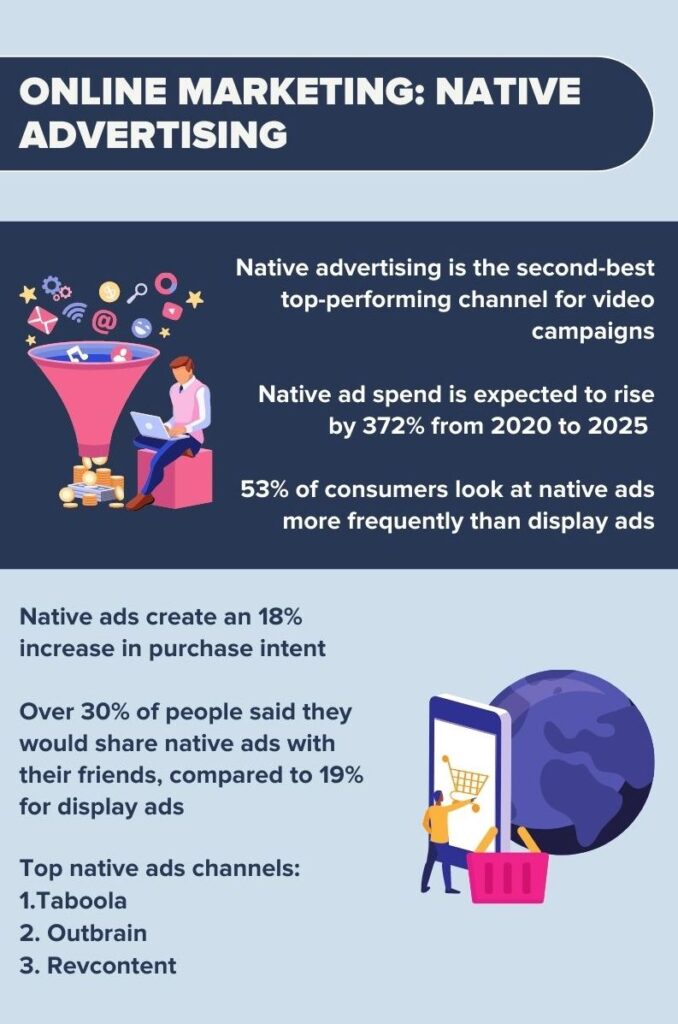As a business owner, you understand that you need to invest in your business to get returns. This applies to your starting capital, investing funds for expansion, and even your marketing budget. Paying marketing professionals and for paid advertisements is one of the most efficient ways of getting your business in front of more viewers.
Many business owners see the sense in paying for investments that can help grow their business, including marketing materials, but balk at paying for online advertisements. They think that the Internet can accomplish most of their advertising goals for free.
However, online paid marketing is one of the best ways to increase revenue. Paid advertising makes it easier to target specific demographics that make up your audience and are the most likely to buy your products. Paid ads also increase your reach more than organic posting, generating more leads that convert into paying customers.
These are just a few of the ways that online paid advertising can help you grow your business. For more on the benefits as well as how to harness this powerful tool and benefit your business, keep reading.
What Is Online Paid Advertising?
Online paid marketing is the process of advertising your business online. Just like you would pay for a spot on a billboard or a flyering campaign through Oppizi, when you purchase online advertising, you pay for a specific slot on the Internet that will display your ad.
Online ads can take many forms, depending on the platform where you are advertising. You can place a video ad on YouTube or another video-playing site, an image or graphic on social media, or create a completely text-based ad for social media.
There are many different places where you can place paid online ads, from search engine landing pages to websites to social media platforms. Depending on the behavior of your target audience, your resources, and your goals, a combination of these strategies is best for you.
You will sometimes see online paid advertising referred to as biddable media or Pay-Per-Click Advertising, which refers to the way most of these ads are placed on search engines and websites. We’ll explain more about what these terms mean and how you pay for online advertising in subsequent sections.

How Will Online Advertising Help My Business?
Before investing money or effort in a new facet of advertising, you probably want to know how online advertising can help your business. The good news is that paid online marketing has some of the highest rates of return of any marketing tactic. You can generate new leads, sales, and profits thanks to paid online marketing.
Effects on Reach
One of the primary benefits of online advertising is in increasing your reach. A business’s reach is the number of people, or potential customers, that find out about your business during a specific marketing campaign. The key to increasing your reach is going to where your customers are, and today many people are online. Google alone sees billions of searches daily.
Paradoxically, online advertising gives you the option of reaching a specific segment of people within the wide net of people that use the Internet. Through keyword choices and targeted advertising practices, you can ensure that your advertisements land in front of the people who are most likely to buy from your business.
For example, if you pay for a highway billboard for your plumbing business, for every local homeowner that sees it, there are five out-of-state tourists, renters, or joyriding teenagers that will ignore your ad. Online advertising allows you to target your marketing campaigns so that you only reach people who are more likely to buy from your business, such as local homeowners. That gives you more return on your investment.
Reaching more people also leads to more leads. Leads are people who express interest in a product, for example by interacting with your advertisements, that you can hopefully convert into paying customers. Optimize your ads for capturing leads by ensuring that clicking on the ad leads to a strong call to action, such as a contact or order form. The goal is to turn as many leads as possible into paying customers.
There are other ways of increasing your reach online, such as building up your social media presence. However, online advertising is usually the easiest way to ensure that a large audience consisting of your target demographic actually sees your business instead of letting it get buried in the algorithm.

Effects on Sales
Generating more leads is all well and good, but more emails on your mailing list won’t pay your electricity bill. Luckily, online advertising also helps you increase sales. Indirectly, advertising facilitates sales by increasing your pool of potential customers. When your pool of leads is bigger, then the number of people that will convert into paying customers will also get bigger.
There is a direct link between exposure to online ads and sales, offline and online. A study published in Harvard Business Review linked exposure to online search engine advertisements to a 50% increase in off-line sales among potential customers of a specific research.
The research is clear: exposing people to advertisements online also makes them more likely to purchase from your business. Exposure alone may not pay your bills, but if done right it will lead to an increase in the sales that power your revenue.

Effects on Profitability
By increasing reach and sales, online advertising also increases profitability. Making more sales and attracting the attention of more potential customers is a no-brainer way of increasing profitability.
Online advertising also helps profitability by increasing order size. Exposure to online ads is more likely to result in larger orders, for example as customers are enticed by offers of a discount. Targeted ads can also help turn one-time customers into repeat purchasers.
The financial benefits of online advertising to your business are immense, but the cost is actually much lower than most offline forms of advertising such as newspaper, television, and radio ads. By decreasing marketing costs and increasing potential revenue, online advertising boosts your business’s profitability.

Which Platforms Support Online Advertising?
Online advertising is a catch-all term for many different forms of advertising on the Internet. While most people think of Search Engine Marketing (SEM) when they think of online advertising, there are actually a few different types. Here is a guide to different forms of online advertising that can help you decide what is best for your business.
Google Ads
Google Ads are some of the most popular and most effective forms of advertising through the Internet. These ads are paid search results that appear on the results page for targeted keywords on the world’s most popular search engine. The advertisements appear at the very top and very bottom of the search page and are usually marked with a discrete Ad label.
One of the biggest benefits of working with Google for advertising is that going through their ad networks gives you access to a much wider audience than the potential visitors to a particular search keyword. Google is a massive conglomerate with many different web products, and you can place advertisements in their Shopping tab, via Gmail (more on that in email marketing), and more.
To place an ad on Google, you go through ad networks such as AdSense or the Google Display Network. Once you pay for a place on the network, your ad gets displayed on many different websites that are partnering with Google and will show off your business in their advertising section.
One of the benefits of working with Google Ads is that you can show many different types of ads. You can run a Search, Shopping, Video, App, or Display campaign. This means that you can run a mix of text, visual, and video ads, showing off your business in different ways and maximizing your marketing resources.

Microsoft Ads (Formerly knowns as Bing Ads)
Many people only think of Google when they think of search engines. However, Bing is still a popular search engine with millions of users, so you should definitely not neglect this potential audience. Bing’s audience is older, wealthier, and often more interested in finance and similar topics due to the connection between MSN and Bing. If that describes your target demographic, don’t neglect Bing!
Bing is owned by Microsoft, who also owns Yahoo and AOL (the other two runners-up to Google’s popularity). When you place an advertisement with one of Microsoft’s search engines, it can run on all three sites, increasing your reach in a way that Google Ads does not.
Another benefit of Bing Ads marketing is that you get far more return on your investment. There is less competition for keywords on Bing, leading to lower prices for ad space and higher clickthrough rates.
The best way to use Google and Bing Ads is as a tandem. The purchasing and ad development process is very similar so you can use the same advertising campaign for both and potentially reach a wider audience than if you stuck to just one search engine.

Quora Ads
Quora is a popular website where users go to ask questions on all sorts of topics. Besides being a place where consumers find answers, it is also a place where businesses can find potential consumers, but one that is neglected by many businesses.
One of the benefits of Quora is that you can target the people that are most likely to buy from you by targeting specific questions that are relevant to your business.
There are two ways of advertising on Quora. The first is to generate organic interest by answering questions relevant to your industry. This shows off your business’s expertise and increases loyalty among your audience, who see you as an expert and contributor to the community. The second is to place high-quality ads that go within the top results for answers to questions related to your business.
Another benefit of Quora is that pages from this website tend to rank highly on Google search results. Thus, you can improve awareness of your business through search engine visitors as well as visitors of this specific website.
Email Advertising
If it seems as if half of the world is chained to their email inboxes, you have the right impression—about half of the world’s population has an email, and almost all of those users check their email inboxes at least once a day. Advertising via email has the potential to reach a very wide audience and receive high rates of interaction.
Many businesses know about some of the benefits of leveraging email for marketing, for example by sending out regular newsletters. However, you can also place advertisements directly in people’s inboxes through email advertising.
Platforms such as Gmail enable you to place advertisements in people’s inboxes that resemble actual emails. These usually appear at the top of the inbox, before they can get buried by unread email inboxes. When more and more businesses are competing for customer attention via email, paid ads are one way of ensuring that your business stays on top.

Podcast Advertising
Online advertising can also encompass all forms of media that rely on the Internet for distribution, including podcasts. Podcasts are digital audio files distributed via the Internet, almost like online talk radio shows that air episode by episode. Almost half of Americans listen to podcasts at least once a month. They are particularly popular among young, educated high earners.
Advertising on podcasts is an innovative way to reach a new audience, and there are a few different ways to do so. You can pay a host to read an ad for you, place an advertisement before or after the podcast, or digitally insert it into the middle of the episode. You can work with a podcast hosting platform such as Acast or directly with a podcast host.
Like most online ads, you pay for podcasts via impressions. In most cases, you pay for a podcast via the CPM, or “cost per mille” rate.

Social Media Marketing
Social media is an important tool for any modern business owner. It is a great way to establish trust, reach a wider audience, and convert leads into sales (for more on the benefits of social media for business owners, check out this article).
Besides growing your social media accounts organically, you can also pay for advertisements on platforms such as Facebook. Advertisements and sponsored posts cut through the noise around the algorithm and bring your profile to more visitors than organically growing your accounts would. Social media advertising also helps you establish credibility.
Which Techniques Can I Use in Online Marketing?
Some of the techniques that you need to make a quality online marketing campaign—audience research, graphic design, and incisive copywriting—are the same as the ones that you would need for any offline marketing campaign. However, there is a bit of a learning curve, as some of the tools involved in developing an online marketing campaign are not as simple as placing an advertisement and hoping that it works.
Here are a few techniques that are crucial to any successful online marketing campaign. You can incorporate a mix of them into your plan.
Keyword Targeting
The Internet is a vast place, and your impressive online marketing campaign won’t result in many sales if your ads are not reaching the right audience. One way to ensure that you reach the right audiences is through keyword targeting.
Keyword targeting is the process of putting your advertisements in front of the eyes of people searching for a keyword relevant to your business. For example, if you sell artisanal soaps, you may want to target the keyword “spa products near me.”
The first step in keyword targeting is research. You want to find out which keywords your potential customers are using more than others. Try to look for long-tail keywords, which are longer and more specific. Long-tail keywords are more profitable because there is less competition for ad placement on them, and the visitors who are getting so specific with their queries are usually ready to purchase something.
Once you identify which keywords you want to target, you can select those when signing up for search engine ads. Google Ads also lets you select a geographical range where you want your advertisements to show.

Remarketing
Remarketing is the online advertising way of trying to get a second chance with a consumer. Remarketing, or retargeting, is the process of advertising to consumers based on their online behavior. For example, if customers visited your site but didn’t give their contact information, you can retarget them with an ad encouraging them to come back to your site again.
Remarketing is slightly different from retargeting because it is more direct. Instead of using cookies to serve a customer the same ad, your business uses a more direct form of communication, such as email. Remarketing is common when customers fill up a cart but don’t check out.
Today, most retargeting works based on cookies. When people visit your site, your website’s pixel tag picks up their browser cookie and adds their information to a list of potential users for retargeting. However, as more and more people are opting out of cookies and Google starts banning third-party cookies, retargeting and remarketing have to adapt.
Remarketing is effective because it reaches people that already have some interest in your business. Sometimes, people genuinely meant to buy from you and got distracted or forgot. Remarketing serves as that last nudge to convert interested people into paying customers.
Influencer Partnerships and Affiliate Marketing
Even in online advertising, personal relationships are important. Consumers are more likely to buy products after a personal recommendation, whether from someone that they know personally or from a public figure that they follow. Public figures with large social media followings are called influencers, due to their ability to influence people’s purchases.
You can work with popular influencers in your field and partner on sponsored posts and content, where the influencer shows off your product to their audience in exchange for a payment. When picking an influencer to partner with, don’t go for the models with the largest following but pick someone in your niche. For example, if you are running a dog biscuit business, partner with a popular dog Instagram in your city.
For more on influencer partnerships, check out our article on social media marketing.
Besides working with social media influencers, affiliate marketing is another way that you can leverage personal connections and paid advertising to drive traffic from trusted sources. This form of marketing is when you reach out to someone on the Internet, such as a blogger, and ask them to promote your product. They earn a commission from every sale, which is how affiliate marketing gets paid.
Nowadays, people are bombarded with advertisements, so many tune them out. However, they are more likely to follow a link from a trusted blogger or a recommendation from a favorite influencer.

Native Advertising
As mentioned above, consumers nowadays are bombarded by near-constant advertising. Most people automatically tune out advertisements. However, native advertising can make people sit up and take notice.
Native advertising is a form of advertising that strives to match the content of the webpage on which it appears. For example, Google Ads that resemble regular search results are a form of native advertising, as are sponsored Instagram posts that look like any other post on the platform. Usually, there is only a small label that alerts consumers to the fact that native content is an advertisement.
Native advertising is far more effective and generates more engagement than in-your-face advertising. It fights ad fatigue and is more engaging than regular marketing content. Native advertising isn’t successful because it tricks consumers—most people know how to recognize these ads. Instead, businesses are forced to come up with ads that look good and add value to the page, which in turn encourages consumers to interact.
Incorporating native advertising into your marketing strategy will increase your engagement and in turn, your sales and profits.

How Can I Get Started in Online Marketing?
Now that you know about the benefits and some of the tools at your disposal, you’re ready to start harnessing the Internet to promote your business. However, going from understanding what online marketing is to raking in the profits is a daunting task. Here are a few steps to help you get started.
1. Research
A lot of research and planning goes into running an online marketing campaign. First, you need to figure out your goals. Who are you trying to reach and what are you trying to get them to do? Buy a specific product or sign up for your newsletter?
Then, you need to learn more about your target audience. Research what their behavior is like on the Internet, which keywords they are likely to use, and which social media platforms they prefer. You should also research what your competitors are doing within the same market.
Once you’ve done all of your research, you can use that information to help craft your campaign.

2. Budget
As with any business endeavor, you need to know how much funding you should allocate for digital marketing. Online advertisements, particularly on social media, are priced in a way that is confusing to many newcomers, but we will explain more later. Once you understand the payment structure, decide how much money you are willing to allocate to your online advertising budget (and adjust expectations accordingly).
3. Create Content
Before you can publish any ads, you need to actually make them. This includes writing compelling ad copy, creating designs, taking photographs, and even putting together short videos if you are advertising on a video platform.
You can use the following tools to help you create:
- Grammarly – Make sure your copy is error-free and grammatically correct
- Canva – design beautiful assets
- Promo – Create stunning videos
When you are making your content, keep in mind different constraints depending on your platform. You should also try to make your content look as natural as possible because native advertising performs much better than obvious ads.

4. Run a Test Campaign
Once you have your content, your budget, and your plan, you can launch a campaign! However, before committing resources to a full-blown marketing campaign, you can launch a small test or pilot campaign with a few ads targeting your audience.
During your test campaign, keep track of different analytics and KPIs, such as click-through rates, that tell you how well your ads are performing. This can help you adjust future campaigns to increase your rate of return. The right KPIs and tracking can also help with remarketing and following up with potential customers.
How Can I Budget for Online Marketing?
Budgeting for online marketing is a little more complicated than buying billboard space or a TV ad, where you pay the set price, and you are done with it.
For most Google Ads, you don’t pay for the space, instead you pay for the action that users take when they see your ads. Most search engine ads are priced according to a Cost-Per-Click (CPC) model, meaning that you pay a small price every time someone interacts with your ad.
For online ads that get less interaction, such as display ads on websites sold through the Google Display Network, you can pay in CPM (cost-per-thousand impressions) pricing, meaning that you pay the distributor to put your ad in front of a thousand different screens.
A third, less common method of paying for online ads is the Cost-Per-Acquisition (CPA) method, when you pay every time a click on your ad leads to a target action, such as a sales conversion.
Many beginners to online marketing worry that the costs of a CPC ad will balloon if through some magical quirk of the algorithm thousands of people click on your ad in a day. However, you can prevent this by setting a daily limit on the number of clicks and on how much you are willing to pay. Once you reach that limit, Google will stop showing your ad to people.

How Do Online Ads Get Their Price?
You can’t look up the price of a Google Ad for your target keyword and location because the price of search engine ads (and most online ads) is ever-fluctuating and determined through an ad auction.
An ad auction is an automated process that determines which ads to show every time someone searches a relevant keyword. Before the ad starts, you give Google your content and how much you are willing to pay per click. During the auction, Google’s robots assign your content a quality score (how relevant it is to users and how well-made it is)







